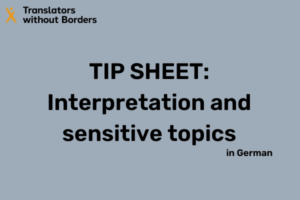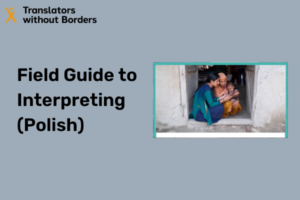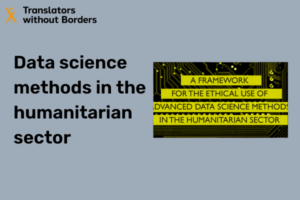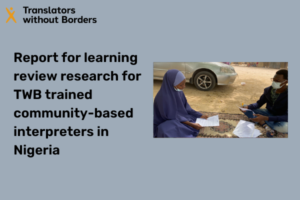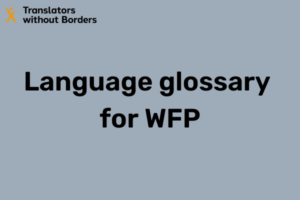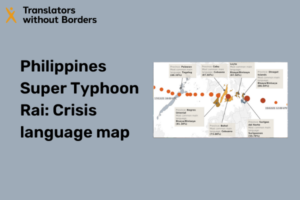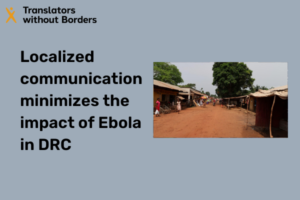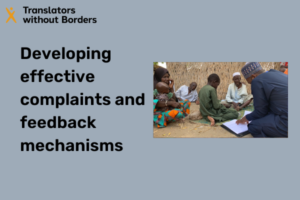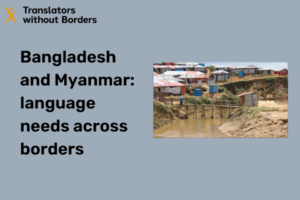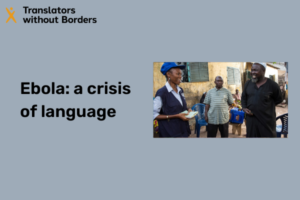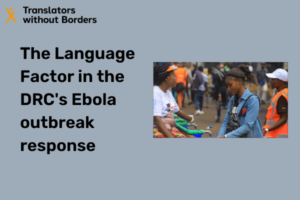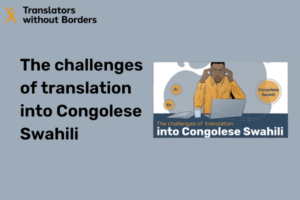View our Tip Sheet: Interpretation and sensitive topics (German) in a new tab here.
Humanitarian Guide to Interpreting (Polish)
You can also view our Humanitarian Guide to Interpreting in Polish here.
A framework for the ethical use of advanced data science methods in the humanitarian sector
This framework is designed to highlight key ethical considerations, and to provide a practical guide for exploring or implementing advanced data science methods to support humanitarian outcomes. It serves to help humanitarian work stakeholders, and other private and civil actors learn how to ethically and responsibly use advanced data science methods in humanitarian work. View […]
Learning review research for TWB trained community-based interpreters in Nigeria
View this research report in a new window here.
TWB glossary for WFP Community Engagement
The TWB glossary for WFP Community Engagement covers subject areas relevant to affected communities in a variety of contexts and includes a total of 216 terms in English, Arabic, Chewa, French, Portuguese, Sinhala, Spanish, Congolese Swahili and Tamil. Sign translations are also available in Malawian Sign Language and Sri Lanka Sign Languages (Sinhala and Tamil […]
Philippines Super Typhoon Rai (“Odette”) – Crisis language map
(Click here to open in a new window.) Typhoon Rai made an initial landfall in Siargao Island, province of Surigao del Norte in Caraga region, northern Mindanao on 16 December 2021. It carried gusts up to 270 km/h with maximum sustained winds of 195 km/h near the centre making it the strongest storm to make […]
Localized communication minimizes the impact of Ebola in DRC
The response to the 11th Ebola outbreak in the Democratic Republic of Congo (DRC) proved the merits of local, multilingual communication with communities. TWB’s research found significant progress compared with the response to the 10th outbreak, and to the many humanitarian emergencies that have affected DRC to date. However, our research also highlighted the need […]
In the loop: developing effective complaints and feedback mechanisms
Complaints and feedback mechanisms are an essential part of the humanitarian community’s ability to be held accountable for the assistance and protection we deliver. You can view our research brief below or here. Also is available an illustrated version created to guide you through.
Bangladesh and Myanmar: language needs across borders
The Rohingya are marginalized in Myanmar society, as reflected in their lack of legal status and recognition as citizens. Across the border in Bangladesh, they are also unable to participate fully in society due to their lack of legal status and recognition as refugees. In both contexts, language barriers reinforce that exclusion. In March 2019, […]
Ebola: a crisis of language
The Language Factor: Lessons for the 11th Ebola outbreak on adapting to the language needs of communities learned during the 10th Ebola epidemic in the Democratic Republic of Congo
Previous Ebola virus disease (EVD) outbreaks offer lessons for public health experts responding to the 11th outbreak. This review highlights that responders need to build more trust with the communities they serve. It suggests that language is fundamental to that. The ninth, 10th and 11th outbreaks of Ebola virus disease have taken place in very […]
The challenges of translation into Congolese Swahili
- « Previous Page
- 1
- 2
- 3
- 4
- 5
- …
- 15
- Next Page »
